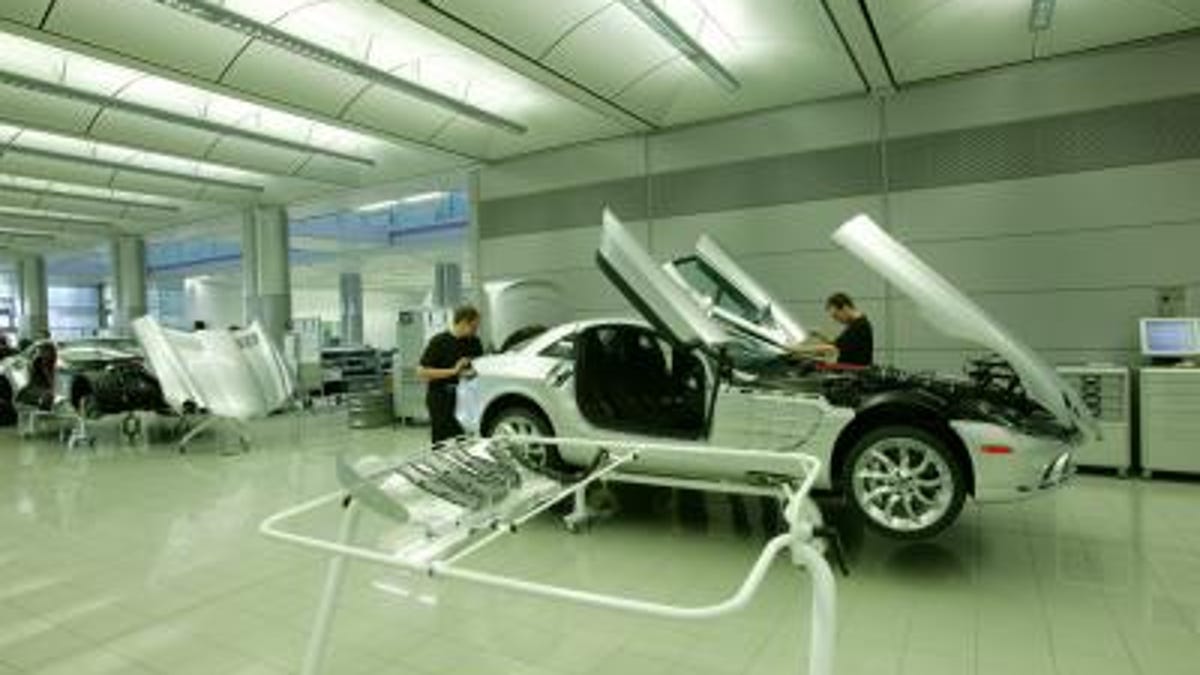Daimler joins BMW in carbon fiber quest
German automaker announces plans to develop mass-produced carbon-fiber car parts to achieve lighter automobiles and more fuel efficiency.

Toray, a leading carbon fiber manufacturer, said Wednesday that it has signed a joint development agreement with Daimler to produce automobile parts made of carbon fiber reinforced plastics.
The German automaker would like to begin using the carbon-fiber parts in its Mercedes-Benz cars within the next three years.
Toray is developing technology to make the design and molding process for constructing carbon-fiber composite auto parts scalable for mass production. Daimler has been developing how those parts will be joined and installed, according to Toray.
"By bringing together respective technologies, the companies plan to develop a molding method with significantly shorter molding cycle," Toray said in a statement.
Carbon fiber has long been valued and used in the car racing world because it's strong but very lightweight compared to steel or even aluminum. But it's notoriously expensive and time consuming to produce. So while you'll find carbon-fiber parts in luxury sports cars like Porches or Ferraris, it's not something normally used in regular cars.
Implementing carbon-fiber parts is part of Daimler's overall environmental strategy to reduce Mercedes-Benz auto body weights by as much as 10 percent. The weight loss will improve fuel efficiency and also compensate for weight gain in models with power trains that use heavy electric batteries. If successfully implemented, this will be the first time a major automaker has employed carbon fiber for mass-produced auto body parts, according Toray.
But that may not prove to be true.
Daimler will actually be in a race against competitor BMW, which announced in early April that it's also making a move toward carbon fiber.
BMW signed agreement with the European carbon fiber manufacturer SGL for a joint venture called SGL Automotive Carbon Fibers. The joint company is opening a $100 million, 150,000 square foot carbon-fiber production facility in the ASPI Technology Park in Moses Lake, Wash. It will initially employ 80 people and use renewable hydroelectric power.
BMW said at the time it plans to implement carbon-fiber parts into its MegaCity line of electric vehicles, which is expected to be out in 2013.

